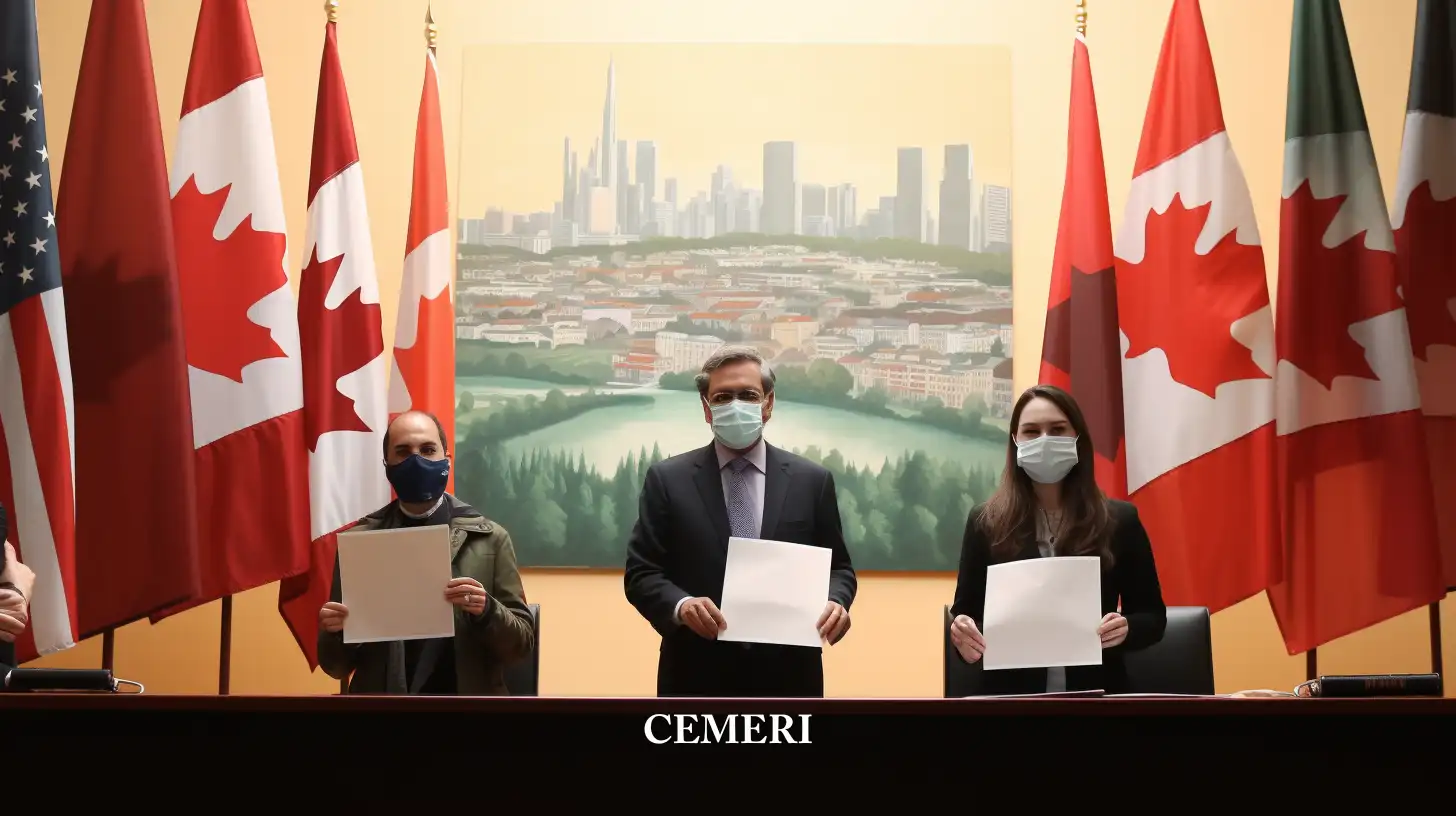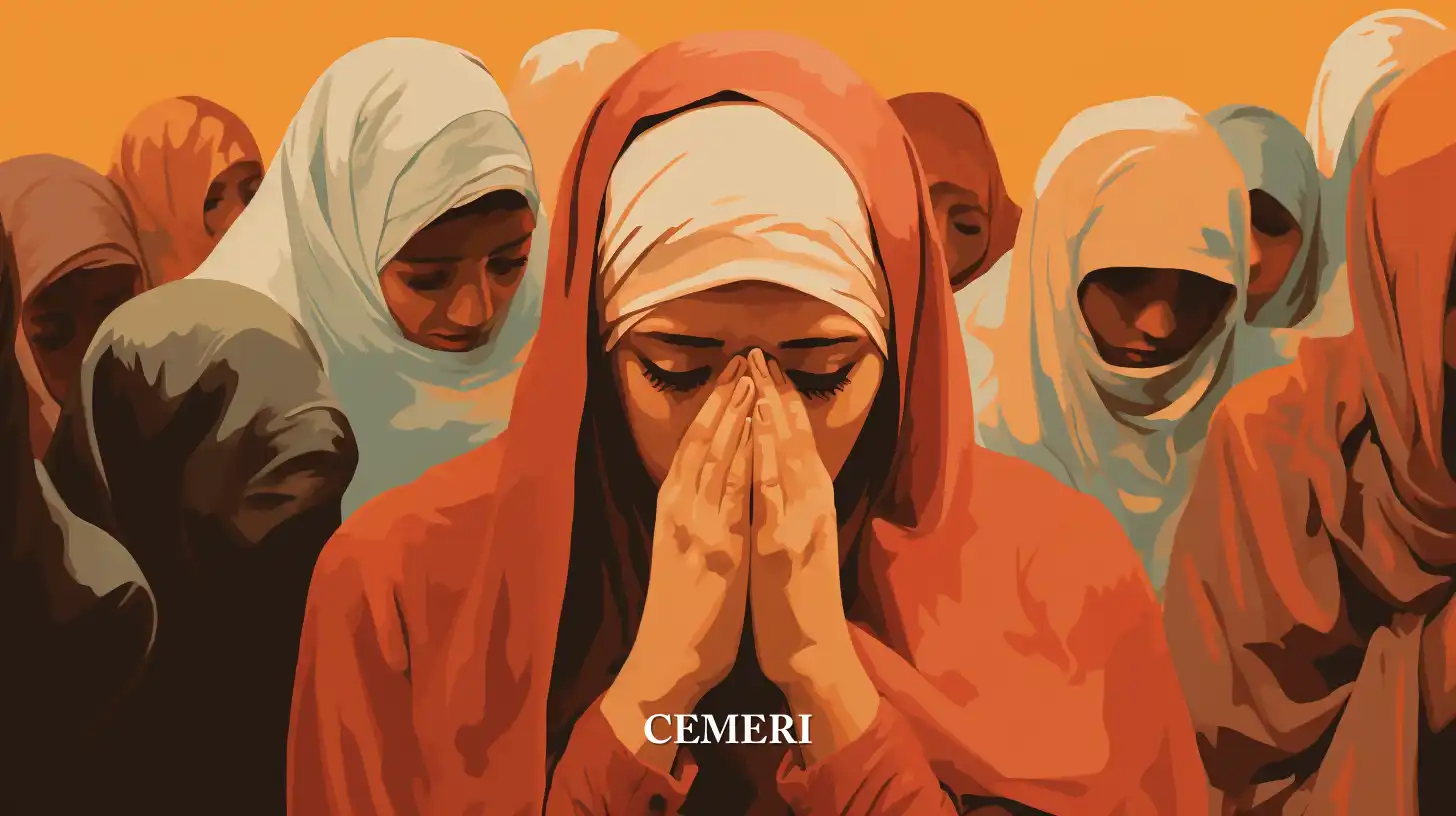Encyclopedia
Saúl Gopar Ensáztiga
What is Local Diplomacy?
- The participation of cities in the international arena is increasingly relevant, so knowing the elements that make up this type of activity becomes necessary.

Since the establishment of the first chair of International Relations in 1919, taught by Alfred Eckhard Zimmern,1 the Nation State has been the central object of the study of this academic discipline. However, in the last 40 years, research on the interactions between the cities and the governments that make up some of these Nation States has become more relevant.
These interactions have been called in different ways within the social sciences: para-diplomacy, local diplomacy, international action of local governments, decentralized cooperation, among others. So, this paper aims to briefly define the concept of Local Diplomacy; its origin, its relationship with the term paradiplomacy, as well as characteristics that differentiate it from other government activities, in order to familiarize the public with this concept.
Origin of Local Diplomacy
As an introduction, it should be noted that one of the first terms used to describe relations between federative entities is the term "Paradiplomacy"; originated, according to Rafael Velázquez Flores and Jorge Schiavon, by Yvo Duchacek and Panayotis Soldatos, in their books The Territorial Dimension of Politics: Within, Among and Across Nations and Federalism and International Relations: The Role of Subnational Units, respectively.2
According to Schiavon and Velázquez "these works were developed in a context in which the federal states, especially those of the United States, began to demand a greater participation in international affairs after the growing economic interdependence at the end of the decade." of the 1970s and early 1980s.”3
Approaching its definition, we have:
For Duchacek and Soldatos, paradiplomacy consists of external contacts, activities, processes and initiatives between non-central governments (federated states, provinces, cantons, ländes, etc.) and other international actors, such as nation-states, local governments similar, private companies, international organizations, among others. 4
So, as mentioned, this concept seeks to define the approach of governments that make up a Nation, with homologous entities from other countries. It should be noted that, for a long time, the term paradiplomacy has been used as a concept that encompasses these interactions, despite the fact that it has been criticized by various authors, since it is commented that using the name "for" refers to having to be carried out secondary, or to one side, of traditional diplomacy, when in the exercise of these relations actions can also be carried out that do not necessarily go hand in hand with the foreign policy of the country to which they belong.5
In relation to this, it can be commented that paradiplomacy does not replace traditional diplomacy, because in the first place and as already indicated, paradiplomacy is carried out by local governments (or whatever its name is depending on the territorial organization of the country to which they belong, referring to the governments that make up part of the Nation State) and traditional diplomacy, on the other hand, is carried out by the countries themselves.
Another characteristic of paradiplomacy is that it does not deal with issues of high politics or high politics, such as national security, defense, free trade agreements, among others; On the other hand, paradiplomacy deals with low politics or low politics, which includes issues of [environmental] protection (https://cemeri.org/tema/energia-medioambiente/), investment attraction, tourism, cultural exchanges, among others.6
Definition of Local Diplomacy
In recent years, reference has been made to the fact that the term paradiplomacy has fallen into disuse, and preference has been given to the term “Local Diplomacy”.7 Proof of the above are the different events that Mexican authorities have held to encourage the participation of Mexican cities internationally.8
Event organized by the General Directorate of Political Coordination of the Ministry of Foreign Affairs of Mexico, in order to disseminate the international activities of Mexican cities.
Although the disuse of the concept of paradiplomacy in the study of social sciences can be debated, it must also be commented that the concept of local diplomacy lacks the criticisms that have been made of paradiplomacy, and makes more reference to international activity ( derived from the use of the word diplomacy) of the governments that are located in a certain territory but that do not occupy an extension like countries (when using the local term).
In this sense, a definition of the concept of Local Diplomacy that we can refer to is the following: "conceptually addresses the set of actions and relationships deployed by local governments in international scenarios."9 With this, we can find similarities between the concept of Local Diplomacy and paradiplomacy, pointing out that both refer to the same phenomenon.
Characteristics of Local Diplomacy
Like any concept, local diplomacy has characteristics that make government actions fit within this term. In this writing, we will recover the factors, actors, instruments, and themes, which will help to identify the actions of local governments that can be classified as Local Diplomacy.
Regarding the factors, economic, cultural and political factors can be identified. Regarding economic factors, “local authorities seek to attract foreign investment, promote tourism, identify international markets for their local products, and transfer technology to boost the economic development of their communities.”10
In order to develop projects within their territories, local governments must have economic resources, granted most of the time by the country of which they are a part. However, it is possible that these resources are not granted in sufficient quantity, since the needs of the region are not taken with the same importance by the local administration, as by the higher administrations, with which the governments locals have as a factor to carry out local diplomacy actions to obtain economic resources.
In cultural factors, it is commented that local governments carry out cultural and artistic events, with an international perspective and image, understanding that the inclusion of this variable is a basic condition to make themselves known beyond their border, for the attraction tourism, economic development, improvement of the quality of education and entertainment for its population, among other advantages.11
It is also mentioned that these types of cultural activities are carried out because the relationship with the diaspora of local governments is very important and, therefore, the authorities want to maintain a close link with their countrymen abroad.12
In this way, it is established that local diplomacy actions are carried out attached to the culture because this entails a boost in the image of the local government, which derives in economic advantages, for its students, and for the population in general.
Regarding the political factor, it is noted that "the regions seek a greater international presence to, in some cases, show their autonomy vis-à-vis the central government."13 In addition, other variables that determine the influx of international actions intervene in this factor, such as they are “a) the personality of the local executive, b) the political juxtaposition, c) the economic capacity, and d) the administrative professionalism”.14
With the above described, it can be seen that the political elements that intervene so that local diplomacy activities are carried out, have to do with factors merely attributable to the public administration of the government in question.
Regarding the actors that carry out local diplomacy, it is worth remembering that from the origin of the concept, the local government is identified as the main actor, which can be both a state government and a municipal government, although its name may vary according to each country.
The concept also refers to the fact that the local government can relate to government actors, such as federal, state, and municipal governments, legislative powers, judicial powers, and international organizations,15 as well as with private actors, such as non-governmental organizations, private companies, groups companies,16 universities and research centers.17
Regarding the instruments used by local governments in carrying out local diplomacy, the authors have identified the following: lobbying or lobbying, participation in international networks and forums, the opening of offices with an international focus, and the signing of interinstitutional agreements. These instruments are an important part of the strategies that each local government develops to meet the objectives set in international matters.
At this point, it is worth making a clarification about inter-institutional agreements, since "according to current doctrine and positive law, local governments are not autonomous subjects of international relations, since they lack an international statute recognized by the law of nations ”.18 However, each Nation State has granted different legal capacities to their local governments to carry out agreements of this type, without contravening international law and bringing benefits to their demarcations.
An example of this is the Law on the Celebration of Treaties of Mexico, promulgated in 1992. This Law marks the difference between an international treaty, concluded only between the Government of the United Mexican States and one or several subjects of international law and an inter-institutional agreement, entered into between a decentralized agency or agency of the Federal, State, or Municipal Public Administration and one or more foreign government agencies or international organizations.19
Regarding the issues in which Local Diplomacy is developed, it should be noted that in addition to the fact that these activities are carried out on low political issues, local governments can only exercise actions that are permitted by the legal framework of the country to which they belong. Thus, the authors have identified that local governments develop international actions mainly on the following topics: trade, investment, tourism, science, technology, health, public safety, sports, environment, culture, education, human resources training , and migration.20
Mayor of the municipality of San Cristóbal de las Casas, Chiapas, during the signing of the Protocol of Agreement and Friendship with the CAP of northern Martinique, France.
Finally, we can mention an example of Local Diplomacy carried out recently. In February 2021, the signing of the Protocol of Agreement and Friendship was celebrated between San Cristóbal de las Casas, Chiapas, Mexico, with the Agglomeration of Communes (CAP, for its acronym in French) of northern Martinique, France , which aims to develop the project "Experiences of decentralized cooperation of mitigation, adaptation and resilience against Climate Change in agriculture, housing and sustainable tourism" and in which the Cooperation Service of CAP Nord Martinique and the Office of Foreign Affairs participated. Multilaterals and International Cooperation of the Government of San Cristóbal de Las Casas.21
In this way, we can identify that the action agrees with the elements of Local Diplomacy, since the actors that carry it out are two local governments from different countries; instruments such as international offices and the inter-institutional agreement are used; the topics are related to the environment; and the political factor related to the administrative professionalization of both parties is present.
Sources
1. María José Izquierdo Alberca, “100 años de estudio de Relaciones Internacionales”, Instituto Español de Estudios Estratégicos, (2019): p. 3. Recuperado el 22 de marzo de 2020. Recuperado de: http://www.ieee.es/Galerias/fichero/docs_informativos/2019/DIEEEI12_2019JOSIZQ-RelacionesIntles.pdf
2. Rafael Velázquez Flores y Jorge Alberto Schiavon Uriegas, “Las relaciones internacionales de los gobiernos locales: un acercamiento teórico-conceptual”, en Diplomacia local. Las relaciones internacionales de las entidades federativas mexicanas, coords. Consuelo Dávila, Jorge A. Schiavon y Rafael Velázquez Flores (México: Universidad Nacional Autónoma de México, 2008): p. 27.
3. Ídem.
4. Yvo Duchacek y Panayotis Soldatos, Cit. pos. Rafael Velázquez Flores y Jorge Alberto Schiavon Uriegas, “Las relaciones internacionales de los gobiernos locales: un acercamiento teórico-conceptual”, en Diplomacia local. Las relaciones internacionales de las entidades federativas mexicanas, coords. Consuelo Dávila, Jorge A. Schiavon y Rafael Velázquez Flores (México: Universidad Nacional Autónoma de México, 2008): p. 27.
5. Zidane Zeraoui, “Para entender la paradiplomacia”, Desafíos, (2016): 16. Recuperado el 22 de marzo. Recuperado de: https://revistas.urosario.edu.co/index.php/desafios/article/view/4470/3206
6. Rafael Velázquez Flores y Jorge Alberto Schiavon Uriegas, Op Cit. 27.
7. Roberto Domínguez y Teresa del Socorro Pérez, “Comparando las relaciones exteriores de los gobiernos locales”, en Diplomacia local. Las relaciones internacionales de las entidades federativas mexicanas, coords. Consuelo Dávila, Jorge Alberto Schiavon Uriegas y Rafael Velázquez Flores (México: Universidad Nacional Autónoma de México, 2008): p. 57.
8. Centro Urbano, La diplomacia local como herramienta de desarrollo territorial – Sesión 2, (2021). Recuperado el 23 de marzo de 2021. Recuperado de:https://centrourbano.com/2021/02/06/iplomacia-local-herramienta-desarrollo/
9. Ángel E. Rivero Palomo, “La diplomacia local del Estado de Quintana Roo”, en La diplomacia municipal fronteriza y costera en México, coord. Manuel Martínez Justo (México: Universidad Nacional Autónoma de México, Facultad de Estudios Superiores Acatlán, 2016): p. 268.
10. Rafael Velázquez Flores y Jorge Alberto Schiavon Uriegas, Op. Cit., pp. 31-32.
11. Manuel Martínez Justo, Origen, evolución y características de la acción internacional de los gobiernos locales en México (México: Universidad Nacional Autónoma de México, Facultad de Estudios Superiores Acatlán, 2018): p. 197.
12. Rafael Velázquez Flores y Jorge Alberto Schiavon Uriegas, Op. Cit., p. 32.
13. Ídem.
14. Manuel Martínez Justo, Op. Cit., p. 199.
15. Rafael Velázquez y Jorge Alberto Schiavon Uriegas, Op. Cit., p. 27
16. Ídem.
17. Jorge Alberto Schiavon Uriegas, “Una década de acción internacional de gobiernos locales mexicanos (2005 - 2015)”. Revista Mexicana de Política Exterior, n. 104 (2015): p. 119
18. Esther Ponce Adame, “La dimensión internacional de los municipios mexicanos: marco teórico normativo y práctica de una realidad”, en Diplomacia local. Las relaciones internacionales de las entidades federativas mexicanas, coords. Consuelo Dávila, Jorge Alberto Schiavon Uriegas y Rafael Velázquez Flores (México: Universidad Nacional Autónoma de México, 2008): p. 408.
19. Ley sobre la Celebración de Tratados (México: Cámara de Diputados del H. Congreso de la Unión, 1992): artículo 1. Recuperada el 25 de marzo de 2021. Recuperada de: https://aplicaciones.sre.gob.mx/tratados/leytratados.pdf
20. Jorge Alberto Schiavon Uriegas, Op. Cit., p. 122
21. San Cristóbal de las Casas Comunicación Social, Firma Gobierno de San Cristóbal Protocolo de Acuerdo y Amistad con CAP Nord Martinica (Francia), (2021). Recuperado el 25 de marzo de 2021. Recuperado de: https://www.sancristobal.gob.mx/2021/02/10/firma-gobierno-de-san-cristobal-protocolo-de-acuerdo-y-amistad-con-cap-nord-martinica-francia/

